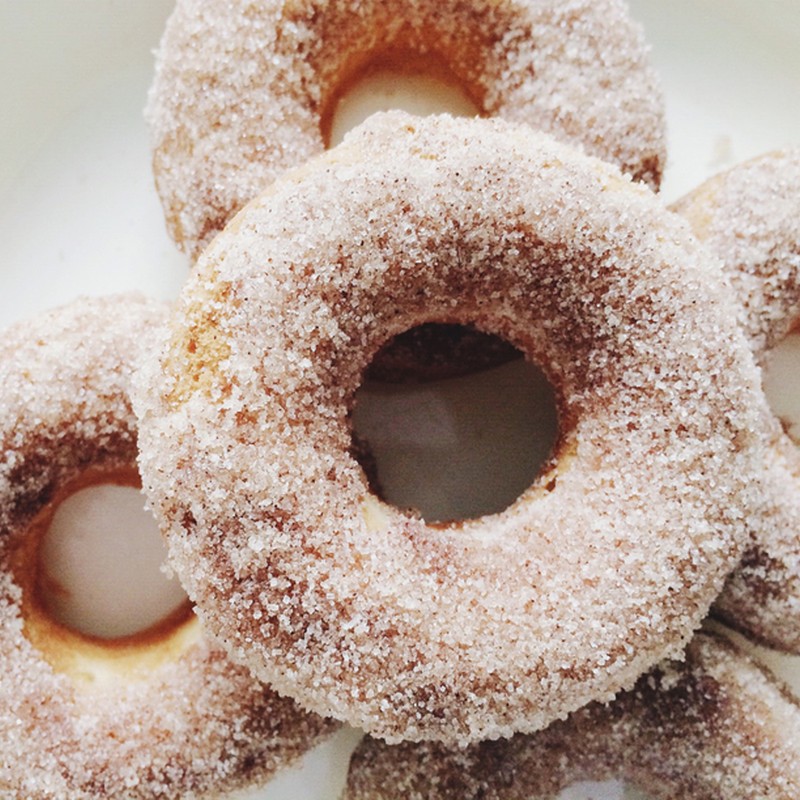Carbs vs Sugar: What’s The Difference?
It might sound obvious to some, but what’s the main difference between sugar and carbs?
Carbohydrates are an essential macronutrient the body requires to run smoothly, but as Amanda Griggs, nutritionist at The Khera-Griggs Cleanse Clinic located at Urban Retreat explains, not all carbs were created equal. “Carbohydrates are sugars that come in two forms: simple and complex, or sugars and starches,” she says. “During digestion, all carbs are broken down into simple sugars in order to be absorbed by the body, meaning all carbs are eventually sugar or glucose, but the difference lies in how quickly these carbs are digested and absorbed.”
Got you. So is this what people mean when they talk about ‘good’ and ‘bad’ carbs?
As Amanda explains, ‘good’ carbs are the complex carbs found in vegetables, wholegrains, pulses and fruit that convert into glucose more slowly into your bloodstream. ‘Bad’ carbs, on the other hand, are the simple carbs your digestive system converts into glucose (blood sugar) at a quicker rate – they are present in things like sweets, honey, jams and fizzy drinks. Harley Street Nutritionist Rhiannon Lambert also comments on the nutritional value of simple and complex carbs, adding that complex carbs, such as wholegrain bread, contain more fibre and micronutrients than simple carbs, which have very little, if any, nutritional value.
Is there ever a place for simple carbs, then?
“Yes, carbohydrates are not the enemy,” says Rhiannon. “A balanced diet has room for both complex and simple carbs, but you should be reaching for more complex varieties on a day to day basis. However, simple sugars are a great source of energy for athletes, or those training for an endurance event like a marathon. If someone who is highly active were to cut out simple carbs, their performance would be seriously impacted,” she says.
What’s the maximum amount of sugar you should aim for on a daily basis?
The Scientific Advisory Committee on Nutrition recommends that for adults, no more than 5% of their dietary intake come from ‘free sugars’. As Rhiannon explains, this equates to approximately 30g or seven teaspoons of sugar per day, but this doesn’t include sugars found in fruit or dairy products. For reference, a can of full-fat Coke contains 35g of sugar, two chocolate Hobnobs contains 12g sugar and ten Percy Pigs contains 40g.
How is this kind of sugar bad for you?
In short, diets high in sugar put stress on the body’s mechanism for regulating blood glucose levels. This is managed by insulin, a hormone that signals to the liver, muscles and fat cells to store sugar as energy. Excessive levels of sugar are linked to insulin resistance, obesity, type 2 diabetes and cardiovascular disease – all of which are preventable through diet. If you are struggling to give up sugar, try taking a chromium supplement, which helps keep blood sugar levels stable.
So, does fruit get the green light?
Yes. The nutrition experts say we should aim for two pieces of fruit per day, ideally choosing lower-sugar fruits like apples, pears and berries. Bananas, mangoes and dried fruits, on the other hand, are still packed with fibre but are a little higher in sugar. As registered dietician Alissa Rumsey explains, fruit is also rich in antioxidants, vitamins and minerals and not the sugar bomb people make it out to be. “Comparing fruit to sweets is like comparing apples to oranges,” she says.
Got you. So what about complex carbs, how much do you need?
“The government recommends 50% of your energy should come from carbohydrates,” Rhiannon says. “If the average woman eats 2000 calories every day, this would equate to around 1000 calories a day coming from carbs, which is equivalent to around 250g. To put this into perspective, 100g of rice or pasta contains 30g of carbs. Aim for a cupped handful of complex carbs at each meal.”
What exactly does the body need these carbs for?
The brain uses glucose as its main source of energy, with studies suggesting the brain needs around 120g of glucose per day; without it, cognitive function can be significantly impaired. If you’ve ever been on a low-carb diet like Atkins, you’ll know how hard it can be to concentrate and you often experience mood swings – this is because carbs play a vital role in transporting tryptophan (key to creating serotonin, your happy hormone), to the brain.
Anything else?
The right carbs can also boot your gut health. As Rhiannon explains, “Certain carbs, particularly ones high in fibre, feed our gut bacteria. Good examples include porridge, wholegrains, vegetables and fruit. Prebiotic foods like onion, garlic, asparagus and bananas, all complex carbs, also help populate levels of good gut bacteria.”
If you need a reminder, here are five foods for a more well-rounded plate…
SWEET POTATOES: One small sweet potato contains 112 calories, 26g carbs and 5g sugar.
OATS: A 40g serving contains 150 calories, 27g carbs and 1g sugar.
BROWN PASTA: A medium portion contains 200 calories, 43g carbs and 1g sugar.
CHICKPEAS: One cup contains 270 calories, 54g carbs and 8g sugar.
BROWN BREAD: One slice contains 80 calories, 14g carbs and 1g sugar.
For more information and nutritional advice visit, The Khera-Griggs Cleanse Clinic and Rhiannon Lambert.com
DISCLAIMER: We endeavour to always credit the correct original source of every image we use. If you think a credit may be incorrect, please contact us at info@sheerluxe.com.


